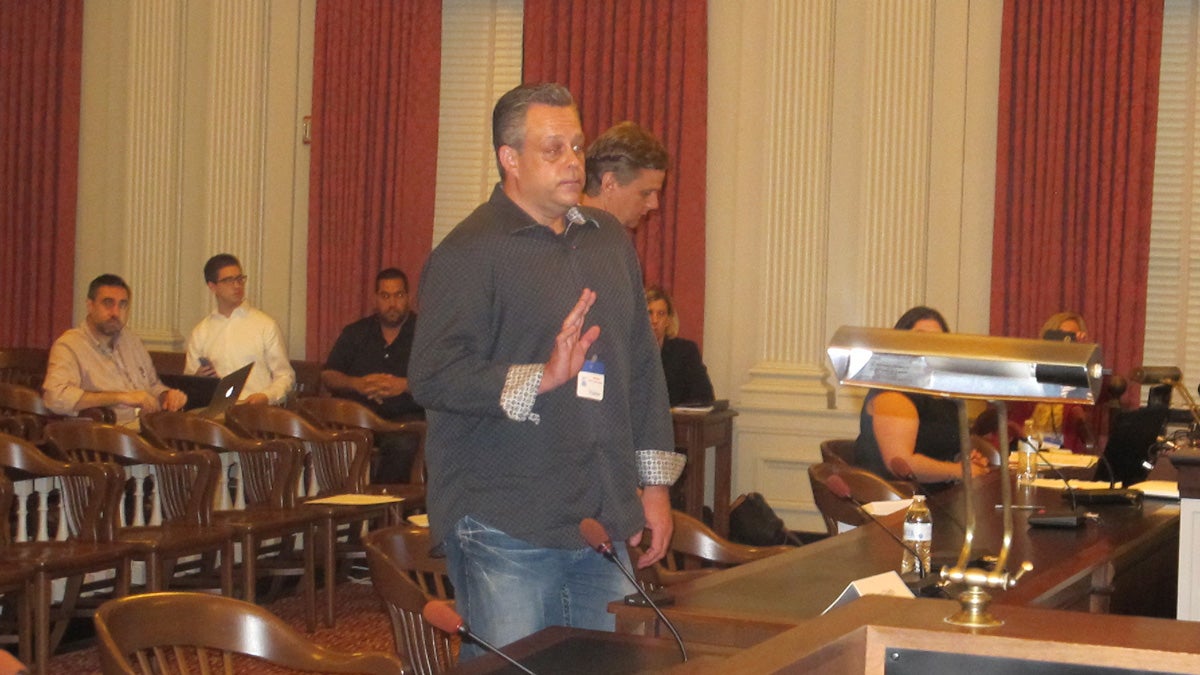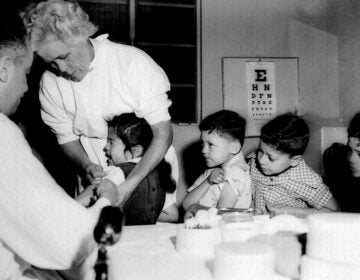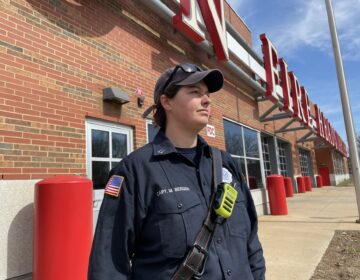N.J. investigators: Unregulated recycling industry posing health, criminal risks

Dirt broker Frank Gillette is sworn in before asserting his Fifth Amendment right not to answer questions at the State Commission of Investigation hearing in Trenton. (Phil Gregory/WHYY))
The recycling industry in New Jersey is so poorly regulated that unscrupulous operators with mob ties are proving to be a reckless menace to the environment, according to the State Commission of Investigation.
One hauler dumped construction debris and soil contaminated with a cancer-causing substance on the beach near the Raritan Bay in Old Bridge, said SCI Special Agent Joseph Bredehoft during a hearing in Trenton Wednesday.
“If this had been done properly, either to a facility that could treat it or a landfill that could take the demolition material, it would have cost close to half a million dollars,” he said.
The town wasn’t paid anything. Now taxpayers are on the hook for the estimated $250,000 cost to cap that debris and prevent it from harming the bay and nearby homes.
Dirt broker Frank Gillette, who was subpoenaed to appear at Statehouse hearing, was questioned by SCI attorney Andrew Cliver about his alleged role in having contaminated soil dumped in Old Bridge and at a landfill in Palmyra near the Pennsauken Creek in Burlington County.
“How did you learn of the Cliffwood Beach site in Old Bridge, New Jersey, and how did you decide to allow this material to end up there?” Cliver said
Gillette had a brief response to that — and every other question he was asked.
“I invoke my Fifth Amendment right.”
The vice president of the largest recycling company in New Jersey supports requiring background checks to prevent the intrusion of organized crime in the industry.
With all the subcontractors involved in transporting construction debris, Gary Sondermeyer of Bayshore Recycling said it should be up to the company where it originated to test for contaminants.
“It goes from this one to this one to this one,” Sondermeyer said. “Who’s keeping track of it? The generator really needs to remain responsible for that material.”
The SCI is continuing its investigation into indiscriminate dumping in other parts of the state.
WHYY is your source for fact-based, in-depth journalism and information. As a nonprofit organization, we rely on financial support from readers like you. Please give today.




